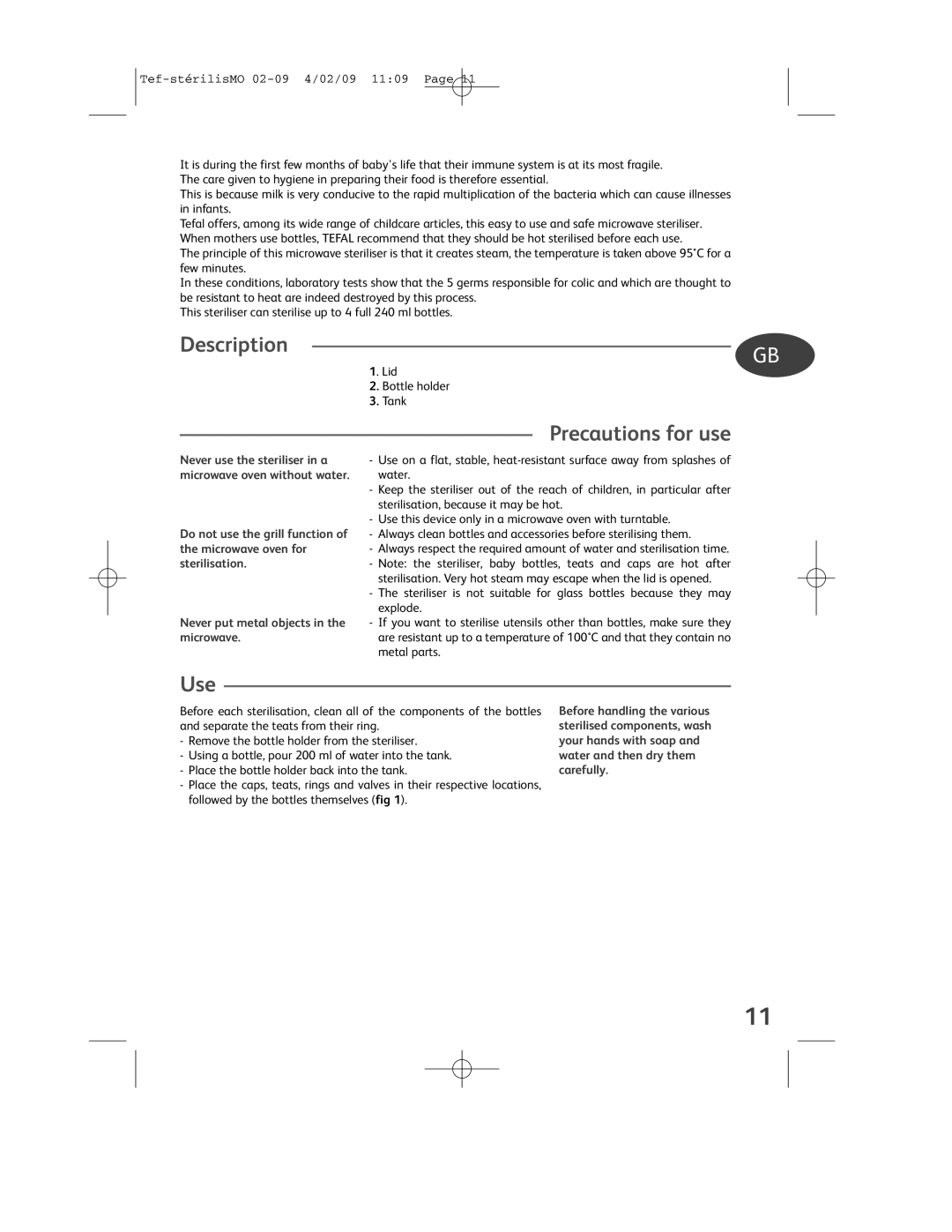
Tef-stérilisMO 02-09 4/02/09 11:09 Page 11
It is during the first few months of baby's life that their immune system is at its most fragile. The care given to hygiene in preparing their food is therefore essential.
This is because milk is very conducive to the rapid multiplication of the bacteria which can cause illnesses in infants.
Tefal offers, among its wide range of childcare articles, this easy to use and safe microwave steriliser. When mothers use bottles, TEFAL recommend that they should be hot sterilised before each use.
The principle of this microwave steriliser is that it creates steam, the temperature is taken above 95°C for a few minutes.
In these conditions, laboratory tests show that the 5 germs responsible for colic and which are thought to be resistant to heat are indeed destroyed by this process.
This steriliser can sterilise up to 4 full 240 ml bottles.
Description
1. Lid
2.Bottle holder
3.Tank
F
NL
D
I
GB
GR
Never use the steriliser in a microwave oven without water.
Do not use the grill function of the microwave oven for sterilisation.
Never put metal objects in the microwave.
Precautions for use
-Use on a flat, stable,
-Keep the steriliser out of the reach of children, in particular after sterilisation, because it may be hot.
-Use this device only in a microwave oven with turntable.
-Always clean bottles and accessories before sterilising them.
-Always respect the required amount of water and sterilisation time.
-Note: the steriliser, baby bottles, teats and caps are hot after sterilisation. Very hot steam may escape when the lid is opened.
-The steriliser is not suitable for glass bottles because they may explode.
-If you want to sterilise utensils other than bottles, make sure they are resistant up to a temperature of 100°C and that they contain no metal parts.
TR
RUS
UA
PL
CZ
Use
Before each sterilisation, clean all of the components of the bottles and separate the teats from their ring.
-Remove the bottle holder from the steriliser.
-Using a bottle, pour 200 ml of water into the tank.
-Place the bottle holder back into the tank.
-Place the caps, teats, rings and valves in their respective locations, followed by the bottles themselves (fig 1).
Before handling the various sterilised components, wash your hands with soap and water and then dry them carefully.
SK
H
BG
RO
HR
11
